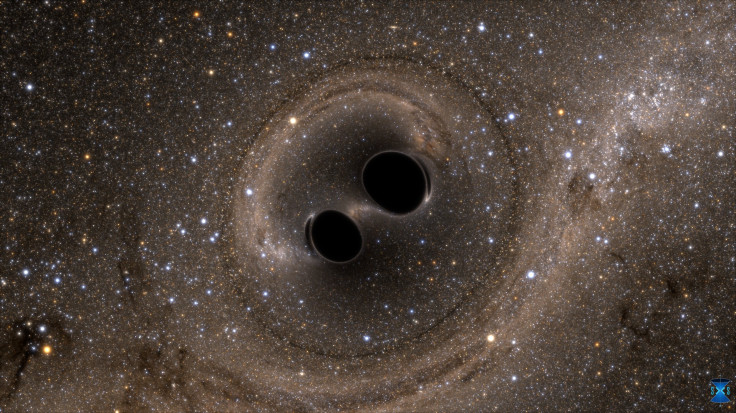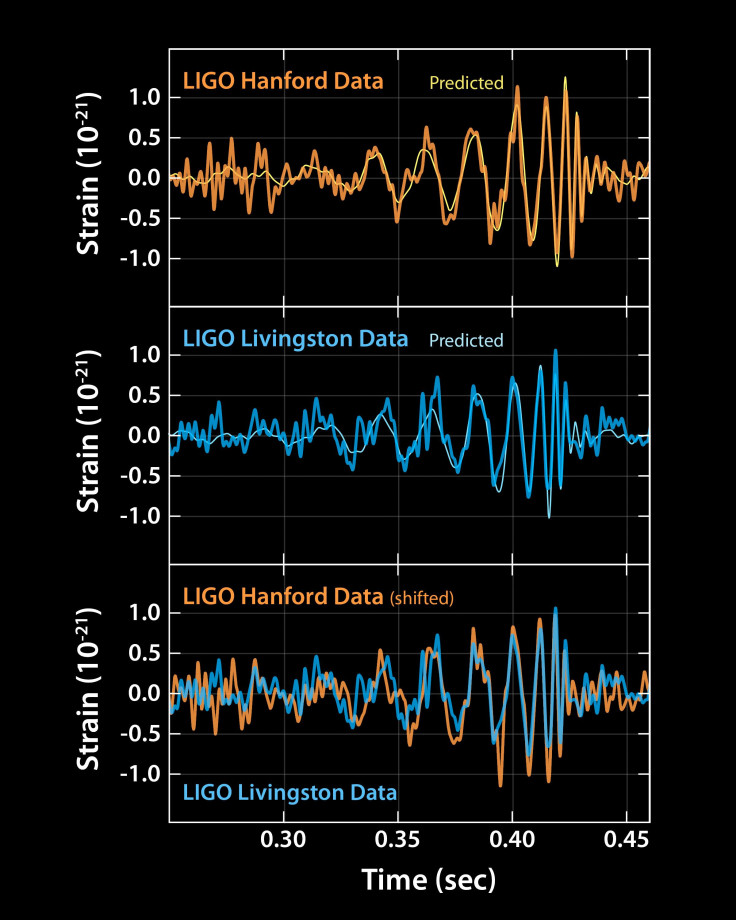Gravitational Waves Discovered: LIGO Detects The Collision Of Two Black Holes From 1.3 Billion Years Ago

Scientists have discovered the final piece of Albert Einstein's theory of general relativity that has eluded researchers for a century. Researchers from the Laser Interferometer Gravitational-wave Observatory (LIGO) announced they have detected gravitational waves, ripples in space-time caused by massive events such as black hole mergers, which were predicted by Einstein, for the first time Thursday.
The gravitational waves detected by LIGO were the result of two black holes colliding approximately 1.3 billion years ago, David Reitze, LIGO lab executive director, said during Thursday's announcement. The merging black holes were estimated to have a mass 29- to 36-times that of the sun and led to an output of gravitational energy, three times more powerful than the sun.
LIGO detected the gravitational wave signal Sept. 14. After receiving the signal, the researchers spent the following months confirming the detection.
“With this discovery, we humans are embarking on a marvelous new quest: the quest to explore the warped side of the universe — objects and phenomena that are made from warped space-time. Colliding black holes and gravitational waves are our first beautiful examples,” Kip Thorne, theoretical physicist from Caltech, said in a statement. The researchers were able to isolate the source of the gravitational waves to a location near the Large Magellanic Cloud, a small galaxy in the southern sky.
Gravitational waves are ripples that are sent out across the universe after violent events such as two black holes merging or a star going supernova. These events cause waves within the curvature of space-time due to the mass of the objects involved. The detection of gravitational waves would confirm the final piece of Einstein's theory of general relativity while vastly expanding the understanding of the universe.

“During the final fraction of a second, the two black holes collide into each other at nearly one-half the speed of light and form a single more massive black hole, converting a portion of the combined black holes’ mass to energy, according to Einstein’s formula E=mc2,” LIGO explained.
The rumors surrounding the discovery of gravitational waves started swirling in January after a tweet from Lawrence Krauss of Arizona State University. Krauss first shared the news the team may have discovered gravitational waves after the first run of the advanced LIGO experiment in September. The rumors were reignited last week after a physics professor's note to his students found its way onto Twitter.
Construction of the first iteration of LIGO was completed in 1999. For the experiment, two identical installations were installed in Livingston, Louisiana, and Hanford, Washington. Within the installations, researchers split a laser beam down an L-shaped detector. If no gravitational waves are detected, these beams travel back-and-forth through the corridors and return to the source point at the same time. If gravitational waves are detected, the size of each arm, which causes a minor fluctuation in the arrival time of the laser beams, will be altered.
The search for gravitational waves ran from 2002 to 2010, but the team did not find any confirmation of the phenomena. The hunt was far from over as LIGO was rebuilt from 2010 to 2014. During that time, the experiment was equipped with inferometers that were 10 times more sensitive than the earlier LIGO experiment. The new inferometers increased the listening range tenfold, which meant the team was able to search for gravitational waves in 1,000 times the number of galaxies than the previous experiment.
The gravitational waves detected led to a small sound being heard in the form of a chirp. “We'll hear things that we expected — like binary black holes or, perhaps, binary neutron stars colliding — but we will also hear things that we never expected and, as we open a new window in astronomy, we may see things we never saw before,” Reitze said.
© Copyright IBTimes 2024. All rights reserved.






















